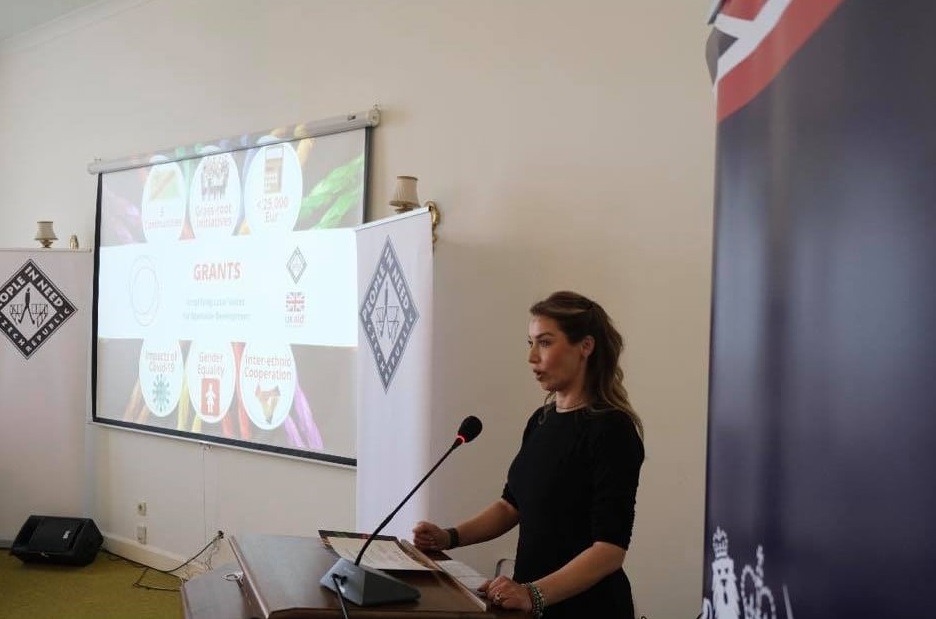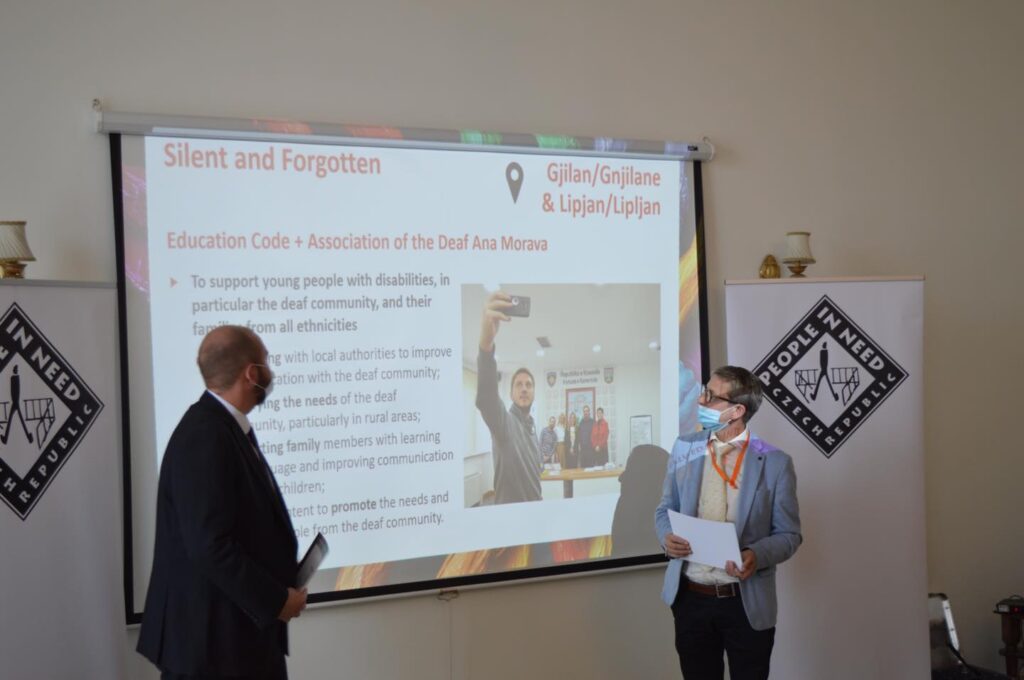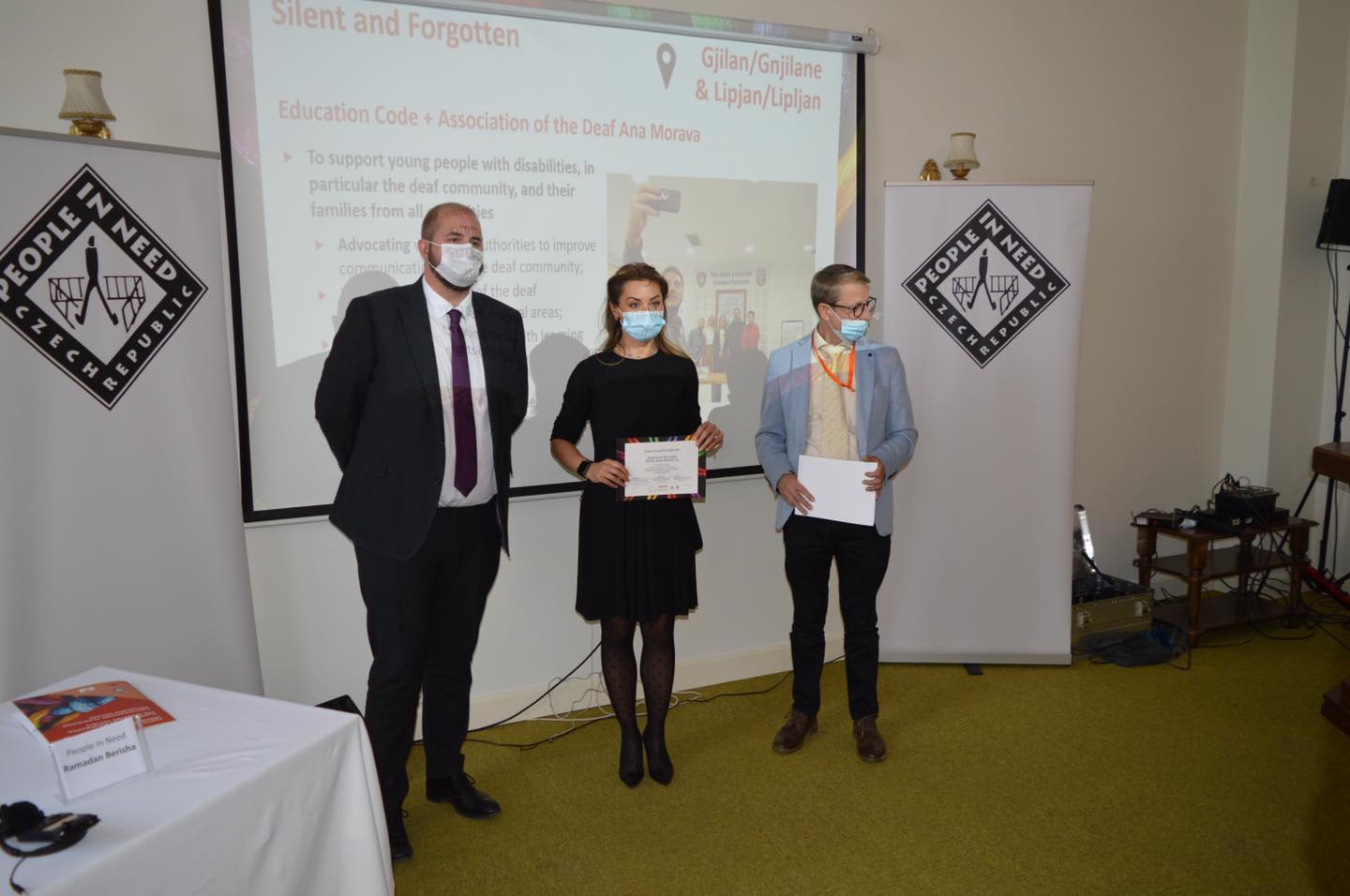“The speech of the director of the NGO “Education Code” invited to represent civil society at the contract signing ceremony, organized by the “ALVED” project British Embassy Pristina & People in Need Kosovo ”
The director’s speech
“I feel honored that I was given the floor by the Alved project to represent the grantees at this contract signing ceremony.
I am Mimoza Stanovci and I am the director and founder of the Education Code Organization, in this case Education Code has been supported by the Alved project for the implementation of the “Silent and Forgotten” project.
We all know that the importance of a flourishing civil society is the promotion of basic human rights, the inclusiveness of especially vulnerable groups in society, social progress and innovation. Civil society actively contributes to the advancement of Kosovo’s European path through its supervision and advocacy programs, as well as technical contributions for sectoral reforms. Civil society is an instrument between society and the state itself and institutions where through supervision but also support it manages to make drastic changes.
The support like this that we have received for the projects which are already being implemented, being supported by the ALVED project, respectively the donors People in Need and UK AID for civil society is also an international goal for Kosovo to increase the capacities of civil society organizations, to improve the environment for the most vulnerable groups and marginalized communities and to promote cooperation and policy dialogue between civil society and authorities supporting these vulnerable groups of society.
In this case, the ALVED project has provided support for us as actors of civil society engaged in the protection and promotion of human rights, fundamental freedoms, as well as to promote pluralism and the expansion of the democratic space through the inclusion in our projects of the most vulnerable groups. marginalized of society.
The outbreak of the COVID-19 pandemic and its long-term impact on the economic and social spheres have contributed to increasing the existing vulnerability of Kosovar society. While the institutional response to the crisis mainly addressed the medical emergency and the most pressing economic needs, social inequalities have grown rapidly leaving the most vulnerable categories (especially women, people with different abilities, from minority and rural communities) with less opportunity to exercise their social rights. Together with all the grant winners, by implementing our projects, we hope to be able to raise the capacities of these groups, making life easier for those who are most affected by this pandemic.
Civil society plays a fundamental role in democratic debate by creating opportunities for active citizenship, civic engagement and participation. With the region’s youngest population (with an average age <30), and the highest youth unemployment in Europe (49.4%), which is even higher for women (60.3%), addressing the needs, development social and economic of young people are essential for Kosovo. Despite the efforts of the government and donors to increase youth engagement, participation and employment, a large part of Kosovo’s youth, especially the needy and low-income youth, do not have access to such opportunities. Most of the existing programs are national and urban, which limits the opportunity for young men and women from marginalized groups from rural areas or smaller cities. Young people with fewer opportunities, differently abled and from minority communities are also likely to be excluded from society and cut off from decision-making and policy-making platforms. Civil society can engage disadvantaged youth through various community-based initiatives, promoting active citizenship and comprehensive youth integration policies, and we can be their voice by supporting them in their initiatives.
In this context, the capacities, stability and engagement of civil society are essential to hold responsible institutions accountable, to monitor all strategies of public institutions and to protect a fairer approach in government decision-making systems.
Civil society has the potential to lead essential initiatives to help citizens and institutions reduce inequalities by being active actors and advocates for future generations in Kosovo.
On behalf of civil society and all the participants at this table where we are the winners of this support scheme from the ALVED Project, we thank you for your support.”



